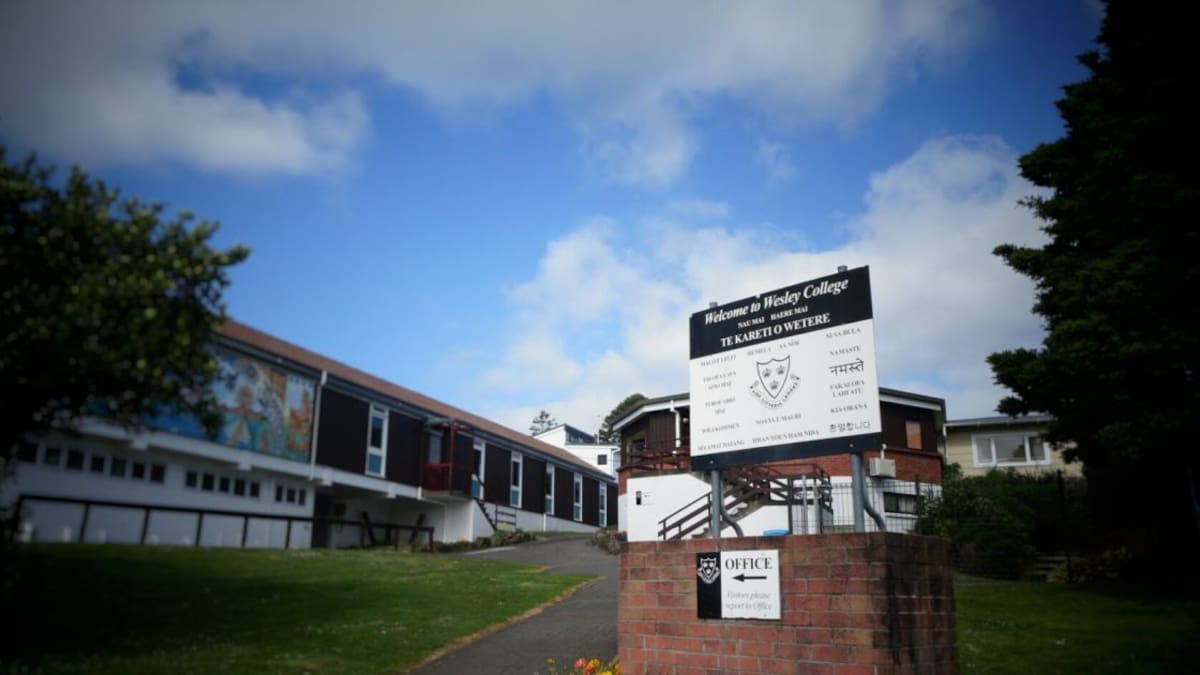“If they think it’s bad now it was far worse then.
“For a lot of kids their whole day was spent trying not to get beaten by the bigger older kids or indeed the staff themselves.”
Both men said they were surprised and saddened to learn the violence was still occurring decades later.
The comments come after Wesley College yesterday announced the closure of its hostels amid “ongoing concerns about student safety and hostel culture”.
Wesley College Trust Board chair Jan Tasker said student safety and wellbeing was the school’s highest priority.
While significant progress had been made in recent years around supervision and “safeguarding measures”, the school’s hostels still weren’t meeting expected standards, and ”further deep, structural change is required”.
“Closing the hostels is a decisive step that will allow us to reset the culture, systems, and facilities once and for all,” Tasker said.
‘Getting the bash’
Max said coverings were a regular occurrence during his time at the school. They happened in different ways.
“Sometimes they’d be random. [Victims] might be in their cubicle and people would just pounce on them and batter them.”
“Official” coverings were more organised, Max said.
“People would be lined up then have to run down the hallway getting the bash.”
Max, who now has children of his own, said victims were left with bruising.
He attended Wesley in fifth form after struggling at his former Auckland high school.
But he hated his time there and pulled out after just a few weeks, in which time he said he witnessed about half a dozen covering attacks.
Bullying was rife, with boys humiliated in the showers and “prefects singling out guys and picking on them”.
“Just the culture there – now it would be called thuggery, like Lord of the Flies stuff. It was widely accepted that it was a dog-eat-dog world. You wouldn’t get away with it now.”
He said the school’s culture had been heavily rugby-orientated, with a “pecking order” according to boys’ sporting prowess.
‘Blood dripping down your leg’
John, meanwhile, said he attended Wesley College in the 1970s and had vivid memories of abuse.
“Brutal canings were common for as little as using the toilet after lights out.”
The punishment would be administered to the victim dressed in only thin cotton pyjamas, he said.
“You were left with a number of huge black bleeding welts, literally you had blood dripping down your legs.”
John claimed that after one such caning he developed a serious infection.
“I ended up unconscious from the pain and infection, and was finally rushed to hospital by ambulance.”
He said he later wrote to the school about his experiences but did not receive a reply.
Wesley College ‘deeply saddened’ by accounts of mistreatment
Tasker said the trust board was “deeply saddened” by the accounts shared by former students of historical abuse and mistreatment.
“These allegations were addressed as part of Wesley College’s involvement in the Royal Commission of Inquiry into Abuse in State and Faith‑Based Care.
“Through that process, the college has acknowledged and confronted past failings, co-operated fully with the Commission, and accepted accountability for the harm experienced by former students.”
Tasker said the welfare and safety of students must always be the school’s highest priority.
The board had made significant changes in recent years to safeguard students and strengthen pastoral care.
“Those efforts include enhanced supervision and reporting structures, modernised safeguarding policies, staff training and support, and we have major infrastructure improvements and renovations planned across hostel facilities to ensure they are state-of-the-art.”
The decision to close the hostels reflected the school’s commitment to ensure any future boarding environment reflected the values of safety, care and respect that students deserved.
Trust board to undertake ‘comprehensive review’
The Education Review Office (ERO) launched a special review of Wesley College in 2023 due to “significant concerns” about violence and management of the school’s hostels.
The Methodist school’s hostel licence was revoked for an alleged lack of appropriate overnight supervision of boarders, but later reinstated for five of its six hostels.
A June 2023 ERO report found evidence that “entrenched practices of harmful traditions” at the school were placing students at risk of “violence, bullying and discrimination”.
The school was placed under statutory management that year but is no longer subject to the intervention.
In April that year, the Herald reported that Oranga Tamariki was working with police to investigate a “report of concern”.
Tasker said the boarding hostels would close from the end of this term.
The timing would allow students to complete NCEA and end-of-year assessments, minimising disruption to their academic success.
The trust board would undertake a comprehensive review of hostel operations, including culture, staffing, safeguarding and infrastructure.
Tasker said the school would work closely with families, staff and the Methodist Church during the transition period, and was committed to supporting boarders with accommodation and pastoral care options.
Ministry considering latest ERO report findings
Ministry of Education acting northern leader Leisa Maddix said the ministry was the licensing authority for school hostels.
The ministry had just received ERO’s latest progress report for Wesley College. The findings were being “carefully considered” to assess whether further compliance action was required.
“While we understand there is public interest in this matter, it would be premature to comment further until a decision has been made.
“Our priority is ensuring the wellbeing and safety of all students in boarding environments, and we will continue to work closely with the school as we progress through this process.”
*Names changed to protect identities
Lane Nichols is Auckland desk editor for the New Zealand Herald with more than 20 years’ experience in the industry.

